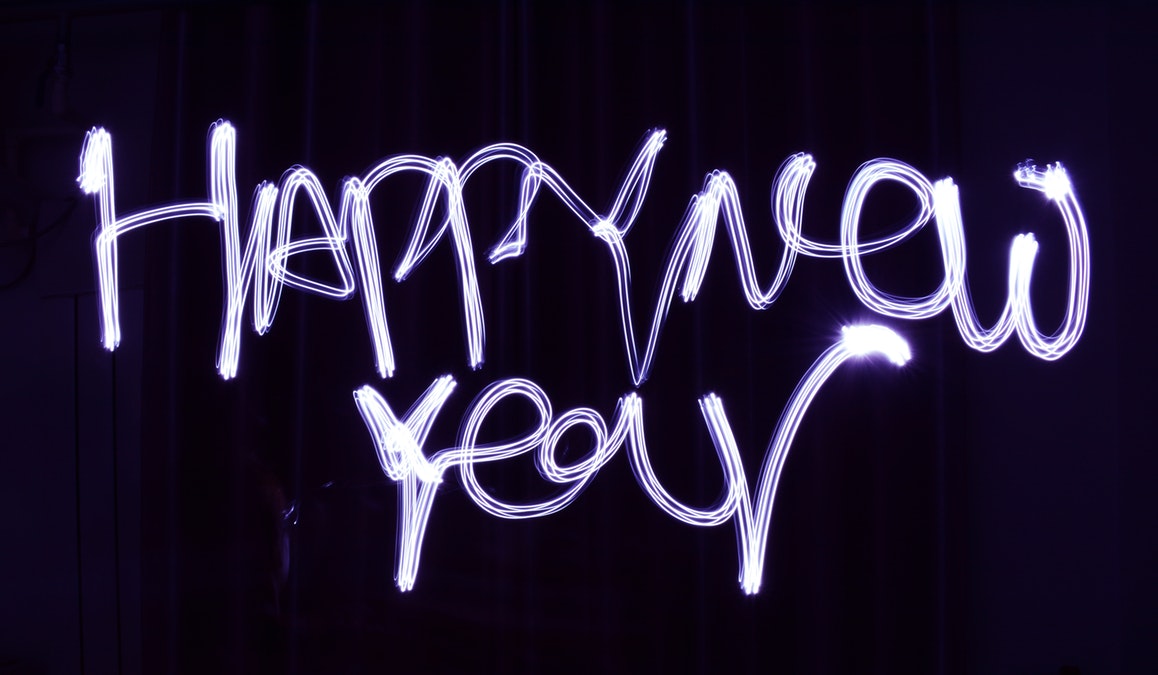We made it! The year is wrapping up and we are looking onward to the clean slate and potential of a brand new year! No matter what the past year held, many are ready for a fresh start. We are in a season of optimism, hope, and commitment to change.
With the new year comes the New Year’s resolutions. I’m not a fan of the New Year’s resolution and I’ll tell you why in a moment. But first, a small disclaimer: I believe we mean well when we set resolutions. Looking at life with a fresh lens and committing to making changes we want to make is healthy. When we set resolutions, we mean to commit to ourselves that this is the year that things will be different. This is the year that we will do the thing, take the leap, start new, and close the gap between who we are and who we want to be. Believing in our highest potential is a gift to ourselves.
But here is the problem with resolutions: They set us up to fail. They are outcome-dependent, often designed to be pass or fail, black or white, all or nothing. We either did the thing, or we didn’t. Sure, it is good in the beginning. The first three weeks of January go smoothly. These new habits are hard, but we are adapting. But what happens when life gets messy or we get busy? We start to slip. Regression is a natural and expected part of the change cycle, but it sure doesn’t feel that way when the commitment we made to ourselves was do or do not. There was no try.
For some, resolutions work. I have heard a few stories about people who stuck with their resolution for the full year, reached their potential, and didn’t look back. But by and large, the experience with resolutions is this:
- At their best, resolutions become something we feel that we “should” do, a pesky little reminder that we are not living up to the dreams we had for ourselves.
- At their worst, resolutions can make us feel downright horrible. What messages do you send yourself when you are letting yourself down? I doubt any of us are hoping to highlight or strengthen our feelings of inferiority in the new year. Who wants that?
How do we preserve the part of resolution setting that is helpful while ditching the part that can create anxiety, feelings of failure, and inadequacy? I propose we set intentions instead. Intentions are a mental state that provide a framework for the future. An intention is not what we want to accomplish, but rather how we want to accomplish it. Setting an intention is like setting a reminder to yourself of how you want to live your life.
Intentions are different from resolutions because they are disconnected from any specific outcome. When we focus on how we want to live and the traits we want to embody, the decisions we make will align with our intentions. We will grow to choose what is best for us because we are rooted in honoring our ideal selves. Naturally, we will progress toward our goals.
In three steps, here is how you can get started on setting your New Year’s Intentions:
- Brainstorm. The answers to these questions will help you generate ideas and clarity for your New Year’s Intentions:
- What type of a person do I want to be?
- What words do I wish people would use when they describe me?
- How do I want to move through life, work, and my relationships?
- What do I want more of in my life?
- Refine. Now that you have a few ideas percolating, try plugging your intention into this sentence: “When given the choice, I will ____________.”
Examples of intentions may sound something like this:
- When given the choice, I will choose peace.
- When given the choice, I will choose kindness.
- When given the choice, I will love myself.
- When given the choice, I will honor my body.
- When given the choice, I will celebrate my progress.
- When given the choice, I will be gentle with myself and others.
- When given the choice, I will be patient.
- When given the choice, I will listen to my intuition.
- When given the choice, I will trust the process.
- When given the choice, I will move with grace.
- When given the choice, I will follow through on my commitments.
- When given the choice, I will be present.
- When given the choice, I will balance ease and effort.
Here are a few tips that may help:
- Play around with the language. The language I suggest may seem foreign, and that is okay. Modify it it something that fits you.
- Seek clarity and specificity. There is power is precision.
- You can have more than one intention, but there is also value in hitting the nail on the head. It will be easier to remember and honor over time if you have one sentence to go back to.
- Remind. How will you remember your intention? I suggest writing it down in multiple places. A few ideas could be a note in your phone, in your planner, on your bathroom mirror, a post it note on the refrigerator, taped to your computer monitor at work or under your keyboard if you would like privacy. Writing it down where you will naturally see it will position you to gently guide yourself back throughout the year.
How does your New Year’s Intention compare to the resolutions you have set in past? I would love to hear!












